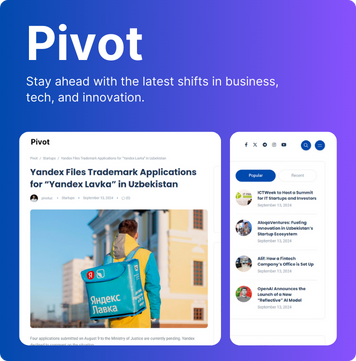
The journey of turning big ideas into successful startups often hinges on overcoming the challenges of fundraising. Each year, millions of businesses are created worldwide, yet only a fraction manage to secure the necessary support to thrive. Early-stage investor Letizia Royo-Villanova from Plug and Play, based in San Francisco, shared insights during the Red Bull Basement global final in Tokyo on what she looks for in founders, the pitfalls they encounter, and how Europe can bridge its innovation gap.
Key Traits of Successful Founders
According to Royo-Villanova, one defining factor is the drive and authenticity of the founder. “Founders should genuinely care about solving the problem they’re tackling, not just for financial gain but because it matters deeply to them.” This authenticity often stems from personal experience or a strong connection to the issue.
Passion alone, however, isn’t enough. Founders must excel at selling their ideas—to investors, clients, and potential team members. “The best founders attract the best talent,” she notes.
While direct industry experience can be an asset, it’s not always essential. “Some entrepreneurs are simply born with the drive to build companies,” she adds. What’s indispensable, however, is understanding the customer and market. “A deep knowledge of the pain point and the industry paves the way for unlocking opportunities in the future.”
Lastly, personality and rapport matter greatly. “In the first 30 minutes, you can sense if the founder is someone you’d want to collaborate with long-term,” says Royo-Villanova. Building a startup involves close partnerships, so a strong personal connection is crucial.
Common Mistakes in Pitching
A compelling pitch is critical for securing investor backing. Yet many founders falter by spending too much time discussing general problems instead of focusing on their specific solutions. “For example, if a climate startup spends 15 minutes explaining the climate crisis, that’s time wasted,” she explains. “Summarize it briefly and move on to what matters: your solution.”
Solo entrepreneurs face additional challenges in convincing investors. Teams of two or more are often seen as more resilient, especially when they bring complementary skills to the table. “Running a startup is hard enough,” Royo-Villanova points out. “Having a co-founder to share the load can make a huge difference.”
Challenges in Operating Early-Stage Startups
Beyond the pitch, successfully managing a startup requires strategic decisions. One major mistake is accepting funding from misaligned investors. “The right VC doesn’t just provide money—they bring strategic value, whether it’s through recruitment, sales, or industry connections,” she emphasizes.
Another critical area is talent acquisition. While startups may try to save money by hiring cheaper employees, this often leads to inefficiencies. “Focus on finding the right fit and building a strong company culture from day one,” she advises.
Finally, adaptability is key. Founders must be willing to pivot if their initial idea doesn’t resonate with customers. “Talk to potential users early, validate the problem, and don’t hesitate to shift direction if needed. Failing fast isn’t failing; it’s evolving,” says Royo-Villanova.
Narrowing Europe’s Innovation Gap
Europe’s innovation ecosystem faces unique challenges. Royo-Villanova highlights a lack of early exposure to entrepreneurship as a significant barrier. “Introducing a culture of innovation to students at a young age can have a lasting impact,” she says.
Regulatory complexity and corporate risk aversion also hinder growth. In contrast to North America’s dynamic entrepreneurial culture, European corporations often adopt a cautious approach. Initiatives like the EU Inc aim to address these issues by streamlining regulations and fostering startup scalability.
Unlocking Opportunities
Founders who embody passion, customer insight, and strong communication skills while avoiding common pitfalls like misaligned fundraising and poor hiring decisions can position themselves for success. Addressing Europe’s challenges through education, regulatory reform, and cultural shifts could create a thriving innovation ecosystem, enabling startups to compete on the global stage.




Leave a Reply